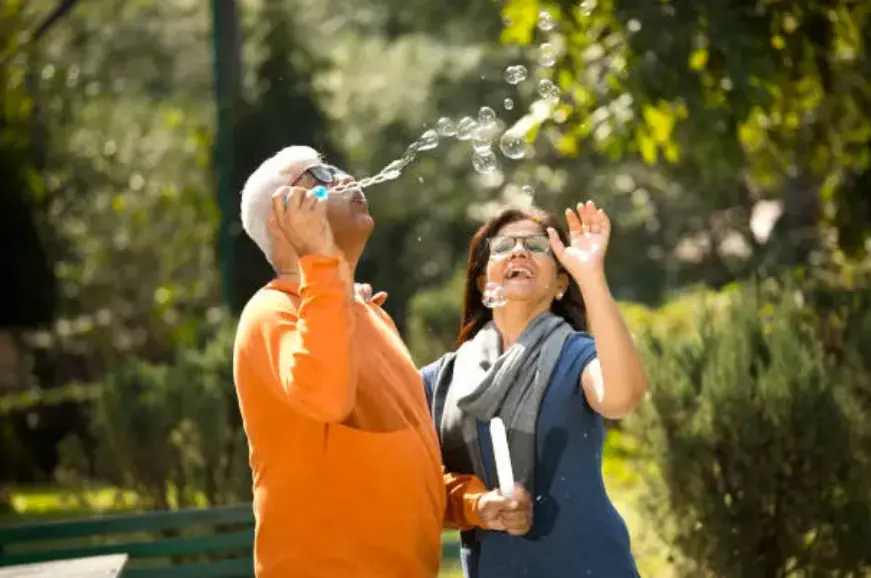
“Babumoshai, zindagi badi honi chahiye, lambi nahi”
It’s true indeed that one should see life from the above perspective, which prioritizes quality over the number of years one lives. The essence, in ways more than one, summarizes what we aspire for, throughout our existence, as humans. However, this endeavour of living one’s life to the fullest often gets difficult to stand firm with, when we reach the most dreaded phase of our lives: the old age.
Aging is a natural biological process, and everybody gets to witness and live it, later in their lives. It not only signifies the time-related decline in physiological functions essential for survival and reproduction but also involves development of physical characteristics such as grey hair, wrinkled skin, and age spots in our bodies. Traditionally, age 65 is considered the onset of older age, aging is a gradual process without a specific starting point and makes one experience old age sooner or later.
Despite of the above-mentioned conditions that tend to come alive as we age, we can try to keep ourselves young, energetic and free from the so-called malady of aging through certain lifestyle adjustments and incorporations in our diet. This approach of looking after oneself to keep the old-age related issues at bay needs to be adopted early on. As good things take time, so do the benefits and therefore, to live life to the fullest, irrespective of the compartmentalized divisions that occur at different junctures of our life with advancement in age, we can make the last one seem as fun and enthusiastic as any other through some guidelines.
The following pointers will help you make a note of the steps you can take to assist the elderly in adjusting with the changes that come about in their lives as they age, subtly and without them panicking about the extra mile effort involved;
1. Taste and Smell: Reduced taste buds and papillae on the tongue decrease food palatability, leading to improper food intake. Colourful and more attractive plating may help elderly to enjoy their food.
2. Salivary Glands: Decreased salivary secretion causes dry mouth, making chewing and swallowing difficult. This can be managed by changing the texture and preparation of food.
3. Teeth: Tooth loss decreases the consumption of normal food, leading to inadequate intake of energy, protein, minerals,vitamins and fibres, leads to malnutrition. And this reduced intake causes constipation, one of the biggest complaints of the elderly. Therefore, taking good care of the gum and teeth early on can be helpful. Also dentures help a lot in taking the required and prescribed quantity of food, as per their age.
4. Gastric Function and Emptying: Decreased acid secretion and rapid emptying rates reduce the bioavailability of minerals, vitamins, and proteins. Thus, taking good care of the gut is also highly advisable.
5. Small Intestine: Increased bacterial overgrowth and decreased calcium absorption lead to poor Vitamin D nutrition and osteoporosis. This, therefore, calls for a permissible exposure to sunlight and exercise.
6. Metabolic Function: Impaired glucose tolerance and a decreased metabolic rate due to changes in body composition and reduced physical activity necessitate dietary modifications and regular exercise.
7. Immune Competence: Declines with age but can undoubtedly be maintained with supplementation and balanced diet.
8. Skeletal Function: Changes in bone density increase the requirement for calcium. Elderly can fulfil their requirement by taking good dietary sources of calcium or through supplementation.
- Psychological Function: Less mobility keeps aged people away from society that leads to lonliness and depression. Depression can affect appetite, digestion, energy levels, weight, and overall well-being. Thus, providing company, care and love to them is what they require the most.
- Cardiovascular Function: Blood vessels become less elastic, increasing the likelihood of hypertension and heart realated issues.Taking good care of the heart, eating heart friendly food, living a stress free life and keeping them physically active will definitely help in maintaing their good heart health.
Though these changes are inevitable but understanding these changes well assists in incorporating the necessary lifestyle adjustments from early mid-adulthood, preventing potential health disasters later.
Let’s strive to make ourselves age like the fine wine: old yet better with age.

Recent Comments